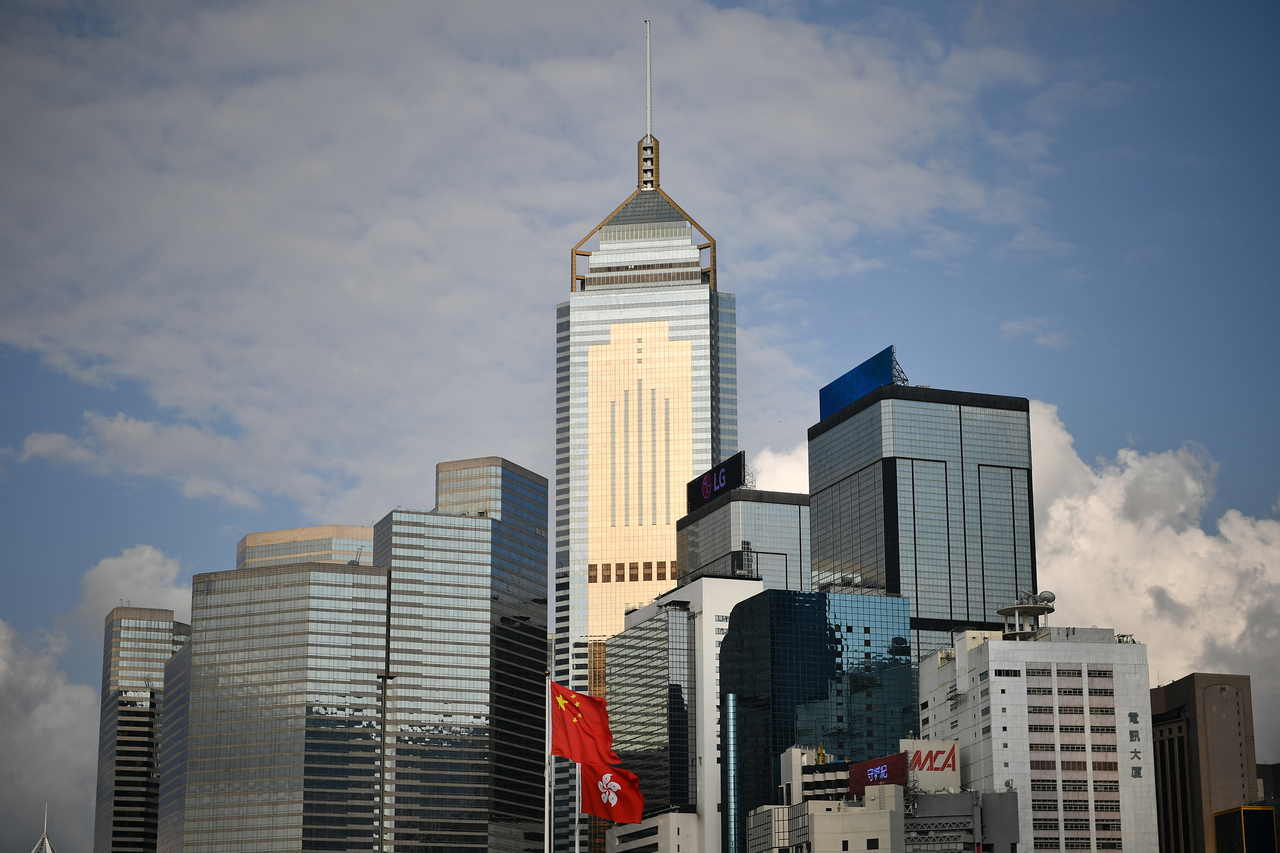Hong Kong heading for its first back-to-back recessions on record
Sign up now: Get ST's newsletters delivered to your inbox

A view of Hong Kong's skyline of Hong Kong as seen from Tamar Park, on June 15, 2019.
PHOTO: ST FILE
Follow topic:
HONG KONG (BLOOMBERG) - Hong Kong is heading for its first back-to-back annual recessions on record, as the coronavirus shutdown cripples an economy already battered by months of political unrest.
Economists' forecasts since the start of February point to a contraction of more than 1 per cent this year, following a 1.2 per cent decline in 2019. That would mark a bigger decline and a slower recovery from the virus than from the Sars episode of 2003, when output roared back after the all-clear was signaled.
Weakened by months of anti-China protests that have kept tourists away and slashed retail receipts, Hong Kong cannot rely on trade and arrivals from the mainland to stoke an economic comeback. The world's second-largest economy is struggling to restart production after shuttering factories and businesses in an effort to stem the spread of the illness.
"The likelihood of a rapid recovery is very slim this time around," said Dong Chen, senior Asia economist at Pictet Wealth Management. "Neither the global economic environment nor Hong Kong's domestic political situation supports it."
This presents a grim outlook for Hong Kong in 2020 as the government prepares its annual budget, due Feb 26. Chief executive Carrie Lam must juggle the needs of the services sector, an increasingly stretched health care system with longstanding issues including the chronic lack of housing, all amid a political crisis that will make bold action even less likely than usual.
The median estimate of economists surveyed by Bloomberg since the start of February is for a 1.2 per cent contraction for 2020. The virus has also steepened forecast contractions for the first two quarters of the year, while delaying an anticipated recovery in earnest into the fourth quarter.
"The impact of the virus on the economy would be severe in the first quarter," said Samuel Tse, economist with DBS Bank. "Private consumption, which accounts for over 60 per cent of the city's GDP, will take the hardest hit."
Hong Kong was able to recover quickly from Sars in large part due to tourism spending from a booming Chinese economy. Yet circumstances in China now are very different from 2003. The increasingly anti-China nature of the unrest in Hong Kong in recent months also makes it unlikely that mainland tourists will flock to the city even after virus fears abate.
That Chinese economic boom heralded a multi-year rise in wealth and spending in the financial hub of Hong Kong, from the proliferation of luxury shopping centers to an almost six-fold increase in property value and an influx of Chinese investment via stock and bond trading links.
It's unclear if Hong Kong will ever see visitor levels from the mainland return to the record high of more than five million per month posted before the protests. Mainland visitors typically account for 70 per cent to 80 per cent of total arrivals into the city.
Preliminary visitor arrivals data for February show average daily traffic to the city plummeted to fewer than 3,000 people, according to the Hong Kong Tourism Board. That's an almost 99 per cent decline from the same period last year, data compiled by Bloomberg show. The jobless rate rose to 3.4 per cent in January for a fourth straight month of increases, according to data released Tuesday.
This makes for a very difficult consumption environment in which to add major government stimulus, said Alicia Garcia Herrero, chief Asia Pacific economist at Natixis.
Nevertheless, Lam announced this week that the government will seek approval from the legislature for almost HK$28 billion (S$5 billion) in fresh funding to reduce the effects of the coronavirus outbreak in the city. The extra spending comes on top of a similar amount rolled out last year to stem the bleeding from months of unrest, as well as another HK$10 billion in livelihood measures announced in January.
RECORD DEFICIT
Hong Kong is facing "tsunami-like" shocks and spending pressure from repeated stimulus measures and rising recurring costs may lead to a record budget deficit in the next fiscal year, Financial secretary Paul Chan said in a blog post on Sunday.
Home prices in Hong Kong appear to be holding up for now. Values for used residential units rose 1 per cent between Jan 19 and Feb 9, data from Centaline show. Yet transaction volume of the 10 biggest estates in the three weekends after the Lunar New Year dropped 38 per cent from a year earlier, according to Centaline. If prices weaken, that would certainly deal another blow to the city's economy.
And while the financial system has largely not been hurt through the protests, a longer downturn amid the virus will put lenders at increasing risk, according to Moody's Investors Service. HSBC Holdings said while reporting fourth quarter results that the coronavirus may lead to further loan losses.
"This situation could well worsen in the days and weeks ahead," said Steve Vickers, chief executive officer of Steve Vickers & Associates Ltd. and a veteran security analyst in Hong Kong.

